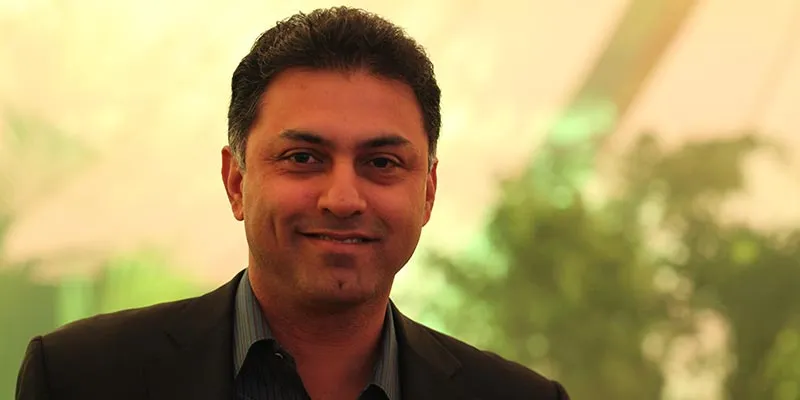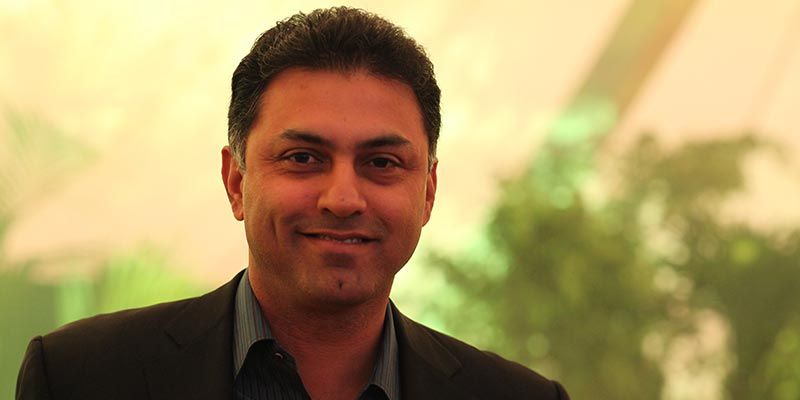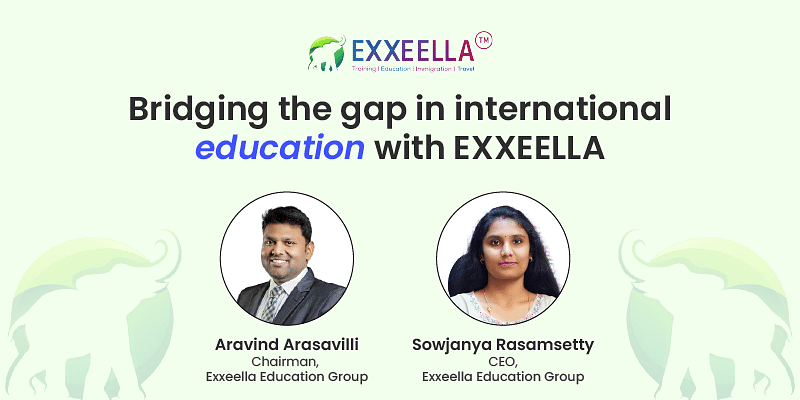Nikesh Arora unplugged
While Prime Minister Narendra Modi ensured that India was in the news across the globe this year, there were some extraordinary Indians who made headlines globally, whether it was Sundar Pichai of Google or his ex-colleague Nikesh Arora.
Most of you reading this article would have heard of Nikesh Arora this year. Arora is the President of $70 billion Japanese telecom and Internet giant Softbank. He has been named the successor of Softbank by its legendary Founder Masayoshi Son.

I attended a fireside chat that Nikesh Arora had with Kalaari Capital MD Vani Kola in Bengaluru a month ago. While Arora has regularly hit the headlines for his investment decisions (including a pretty big one in Softbank), and his truly international sphere of influence, the chat had some interesting takeaways for me as an entrepreneur.
Introducing Arora, Vani described him as a person who values his commitments, ups the value quotient for the companies he backs, and is very decisive. He’s also willing to consider your point of view, and drive reasonable conclusions.
Here’s an excerpt from the conversation.
Investment in 2016
Our Alibaba stake is $40 billion–$50 billion. Hopefully, it gets better from here. You’d assume that over 10 years we should unload a little bit because if it’s done really well, it would generate $30 billion–$40 billion after our cash. That roughly gives you $2-4 billion to invest, that’s what our benchmark is. Some years you will invest more, some years you will invest less. Sometimes markets are high and sometimes they’re low. So far in the last one year, we deployed $3.7 billion.
The minimum cheque size can be anywhere between $50 million and $100 million, but it’s more important to see what we have found. We have thought long and hard about this and some of you may know that Softbank is a venture capital business which had $300 million, (and)our most recent success was FitBit, which went public.
The venture capital business everywhere in the world roughly looks at about a million companies. We just don’t have the bandwidth or the ability to parse through that (number), so we decided to go one step higher and we will work with the best VCs and look at their portfolio of assets and ask them to suggest their best assets.
We will take a look at the best assets, so that the universe is between 500 and 750 companies worldwide. It is easier to analyze 500-750 companies than to analyze 1.5 million companies, because we would then be just another player trying to analyze the same companies. If you try to look at the space of these 500-750 companies, there’s probably only a handful of people around the world who can consistently write out cheques.
Many people can write cheques, but after a while they have to raise more money, so there’s no guarantee they’ll have the money the next time you (a company) raise funding. So we saw that’s the good place to go try and brand yourself, try and build a team around, and look at that space that is venture-funded and more later-stage. Some hedge funds can participate, asset management companies can participate, and there are some late-stage VCs who I know want to participate. But that number becomes a small universe. It’s so much easy for us to play in that if capital is available. Capital is always a primary constraint as people go up the chain. So playing in that space it makes it easier to collaborate in venture capital. And there are less than 10 companies a year doing that.
How to reach him?
We have a team of 15 people, and we try and respond. It’s hard to respond to everyone as not everybody understands our investment criteria. Sometimes even we don’t!
I haven’t met an entrepreneur who doesn’t believe he has a big idea, a big market, and he is going to execute it perfectly. It’s very hard for them not to feel that. That’s how everyone should feel. It’s just that sometimes we are not smart enough to see how smart they are. So people find us tough.
It would be very hard for us to invest in something where we don’t even start to see traction. So we don’t mind missing out on the first two or three rounds. We don’t mind if someone walks in with a $500 million valuation or even a $1 billion valuation, as long as the startup has the potential of being a $10 billion or even a $20 billion valuation. In that case, we got in cheap. But we are not smart enough to buy something at 20 and expect it to go to 10. 20 can go to $300 million but that’s not where we want to participate because to deploy $40 billion, you need a lot of $20 million investments and keep track of them and be able to exit them. So this is not something we care for.
Plus, we don’t have the pressure of having to return our funds. We have permanent capital, we have shareholders, and we have a balance sheet. They are perfectly fine if our balance sheet owns $40 billion of Alibaba for 50 years.
New opportunities
The one thing we are doing is that we are systematically looking at the universe so we actually know the founders and companies which have traction. The good news is that in today’s world, everything is online. So you can sit in California and you can see the stats. We can see how many downloads and how much traction they have. There are lots of companies which track every app out there. So you don’t have to come to India to see what the traction has been. Sitting in California, we would know what the traction is for which company.
It’s very hard for us look at a space if there are 50 companies in that space for us to invest in because we want to wait for the market to shake up a little bit. If it’s a unique idea that nobody else is playing in, it’s always interesting and harder to find. If it’s a space in which you know there are 50 companies, we are not smart enough to understand (all) the 50. We will wait till it shakes out to five. We can understand five. We try and assess that of these five, which one can win. But we just don’t have the resources to look at 50. So we wait for the market to go up a little bit. It’s fine if sometimes we don’t get a chance to invest. We understand that. We are in the portfolio business, so we have to find a few of them.

OPM and de-addiction
It’s hard to be boring about this, but when I went to business school I learnt that the value of companies is determined by the present value of future discounted cash flows. I think that still holds true.
The value is still the present value of the future discounted cash flows and it’s just down to your imagination what the cash flow in the future will be. Some people have a better imagination than you do. And that’s why they value these things at that price. I said this to a portfolio company today, at some point in time you have to get de-addicted from OPM. OPM is “other people’s money”. All these startups in India are actually addicted to OPM; nobody is making profits. They get the money and burn it. Then they say we need more money and they burn it. So at some point they are going to have to get de-addicted.
Silicon Valley and being unflappable
I think what we all have to appreciate that the risk appetite of Silicon Valley has become cultural. And people (there) have the risk appetite, they have an appreciation for failure, they have an appreciation for pivots. These are the people out there in the ecosystem, people (who) are reasonably unflappable (because) these guys have been doing this for 20-25 years (and) have a lot more experience. Now in this room, there are some people who’ve maybe been investors for a while, and some people are first-time investors. So the Indian ecosystem has to go through its learning over time. You look out there, and there is just you funding a bunch of people, and the great thing is that it’s amazing.
Boss and value
You have to respect and appreciate that this gentleman, Masayoshi Son, was the richest man in the world for something like 80 days. He was richer than Bill Gates and Warren Buffett. And people came to him and asked what he was going to do with all that money and why he didn’t set up a charitable trust and so on. By the time he solved the problem, his net value went down by 99 percent over a span of two days in the last bust. Because he was an investor in every Internet company and the market went south. But at that time, he went and bought a company for $20 billion. He had $1 billion and borrowed $19 billion at a time when he had lost 99 percent of his worth.
He bought the business and it’s one of the very few examples where somebody actually turned around the business. He bought it from Vodafone. And Vodafone is a global telecom player. He bought it, turned it around, and it’s probably worth three times the number, but I remember $19 billion was borrowed money at one percent. So if he was willing to invest in that environment with his personal net worth going down so much, I think culturally we should have an appetite for risk in that kind of market. And I hope that value transitions into the rest of the company.
India, 10 years from now
There are some things that are indisputable: everyone will say there will be more people using mobile phones and broadband. There will be more people comfortable ordering things online.
I don’t know who the winners will be, but there’s reason we invested in Snapdeal. If you look at the US, there is Walmart with hundreds of billions of dollars’ GMV, there is Amazon with hundreds of billions of dollars’ GMV, but in India, the largest GMV of any retailer is $60 billion.
So it’s such a fragmented market that you believe that the online commerce will help consolidate (the market). So if Kunal said yesterday, it's $2.5 trillion e-commerce market, and you pick a number, say 5 percent, 10 percent, or 8 percent, any number is a good number right, because right now Indian e-commerce is -- pick a number -- $13-15 billion market.
If it’s going to go up by 10 times in the next 10 years, it’s a $150 billion market. If rationality prevails and by then these people are de-addicted (from OPM) and they are not burning this amount of money, at that time we see trading to be 0.6 to 0.9 times the GMV, depending on the profitability. So we create a $30 billion-$50 billion GMV company.
I’ll take a share of this company 10 years from now and assuming the execution happens and rationality prevails, in that context, it is going to be huge in certain markets. If you find certain category leaders and if you believe they will execute right, then you can believe rationality will prevail and that the company would be something to sell. But those are risks that you take into account and then invest.
Success is a combination of luck, hard work, and a little bit of talent. Sometimes people are talented and work hard and they miss out on the luck piece. Sometimes people are too lucky, they miss out on the talent and the hard work piece. So those three things work in some combinations.
Nikesh Arora is a convincing, real, and a natural leader. You cannot but be impressed with this man who is on a clear mission to create a deep and meaningful impact. Hopefully this article will prep you for your meeting with him. :-)











